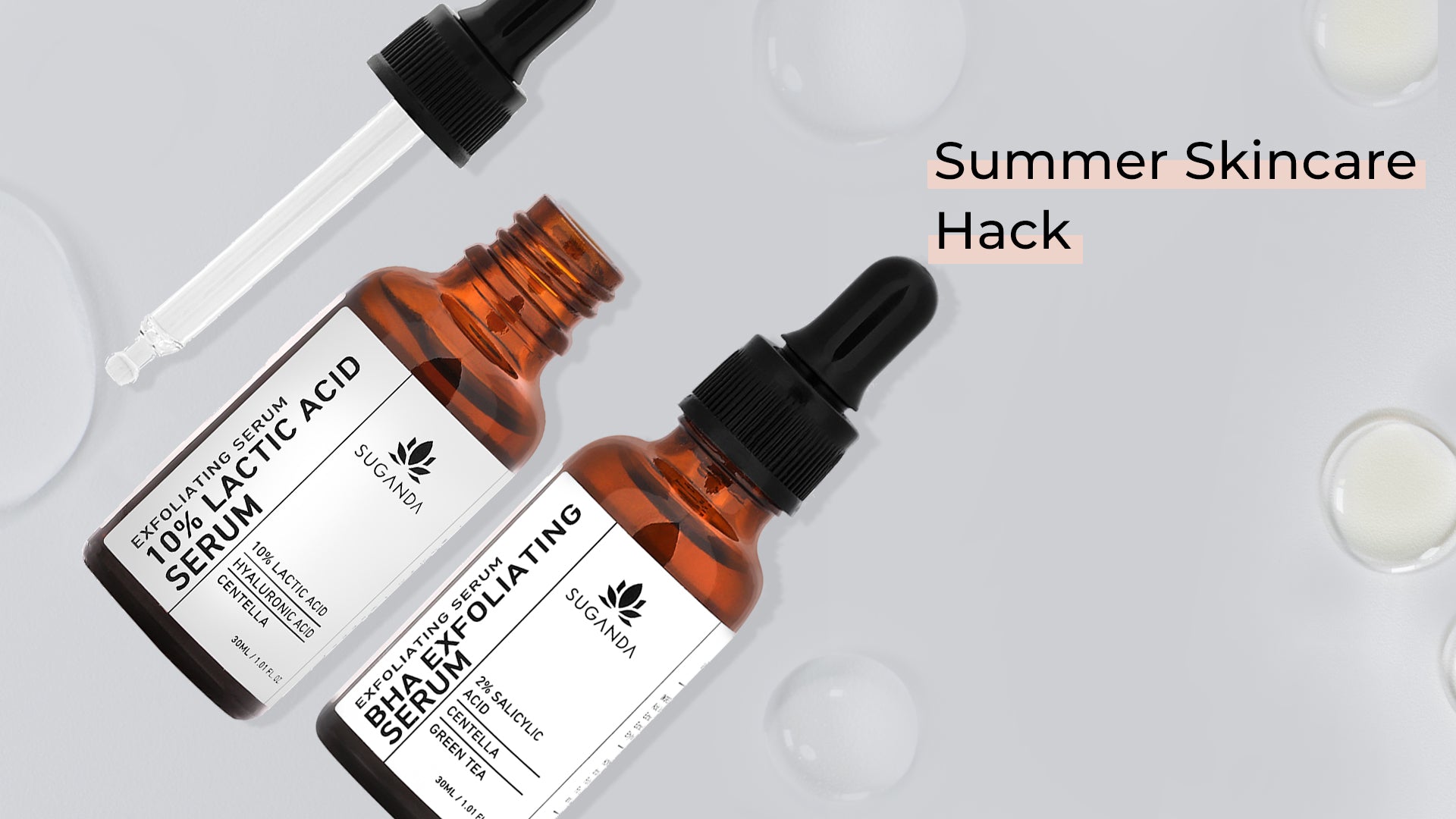As we step into mid-February and early March, all we remember is the sunscreen and a scarf to shield the skin from harmful UV rays. Is that all? There are many other things to be taken care of to protect ourselves from the hot sun.
Firstly, let us know why should we add some extra care to our skincare routine during summer. The sebaceous glands produce more oil that clogs the skin pores with hair follicles during summers. This increases the inflammation within the pores and leads to breakouts. We need additional supplements during summers to keep away from the shine and breakouts.
Here are some hacks to incorporate into your skincare during summers.
1) Double Cleanse The Skin
What does double cleansing mean? Is it washing the face two times a day or following two steps while washing your face? Of course, the latter is the correct answer. The most common approach is to wash your face with a pure oil or oil-based liquid cleanser, followed by a regular, water-soluble cream or lotion cleanser appropriate for your skin type. Then you continue with the rest of your skincare regimen. Oils, whether mineral or plant oil, are excellent at expelling all types of makeup and can also aid in the removal of stubborn sunscreen formulas. Modern cleansing oils and cleansing balms have an advantage over pure oils because they contain an emulsifying agent. This allows the oil to combine with water and form milky colloids, making it easy to rinse off the skin rather than leaving a sweaty residue.
1) Use A Sunscreen
We just stated that sunscreen is not the one-stop destiny to treat summer shine but a crucial one.UVA and UVB rays are the two types of radiation emitted by the sun. UVA rays contribute to skin ageing signs such as wrinkles and sagging. UVB rays are more carcinogenic and frequently cause sunburns. So, we have SPF in sunscreens that block your skin from the sun's rays. Choosing a broader spectrum sunscreen will help shield from both UVA and UVB rays.
Vitamin C helps to brighten your overall complexion, resulting in even-toned and energetic skin. It's also a potent antioxidant, which means it can help protect your skin from damage by free radicals. Free radicals imply that the oxygen atoms are unpaired, and they seek any atom to stabilise the bond. As more free radicals bond with the skin, more damage to the skin and thus results in premature ageing. As vitamin c is a good antioxidant, it opposes the process of oxidation. Hence it is preferred to use a vitamin c serum under the sunscreen to prevent exposure to free radicals and stay untanned.
3)BHA To Reduce Acne And Clogged Pores.
As our skin is exposed to the environment, it is susceptible to wind, bacteria and UV rays from the sun. As a natural process, the skin repairs itself by replacing the old and damaged skin cells with new. This process is called epidermal turnover. The dead skin cells pile up on the skin's outermost surface during this process. As the dead skin cells build up, they mix with the sebum and clog the pores, which leads to inflammation breakouts. Using a BHA helps exfoliate the dead skin cells and thus prevent the breakouts and formation of clogged pores. It is recommended to use BHA and makeup to avoid clogged pores.
4) Moisture Sandwich Method
The phrase "moisture sandwich method" might sound complex but it is a simple layering process. Firstly, dampen your skin with water, apply a thin liquid consistency product such as the serum, and then top it with a thick moisturiser, either water-based or cream, based on your skin type.5) Lactic Acid
Lactic acid is an AHA (alpha hydroxy acid). AHAs are less harsh than Beta Hydroxy Acids. Like all AHAs, it instantly refines texture, making skin smoother with a bright glow. It enhances the skin's natural cellular turnover and moisturises it. Because lactic is also a moisturiser, it draws moisture into the skin, making it extremely hydrating and plumping. This helps to reduce the fine lines and wrinkles, refine skin texture, and discolouration
Try incorporating Niacinamide serum that helps reduce oil production for a clear skin during hot summers!
References:
- Beta Hydroxy Acids. (2020, August 24). Retrieved from https://www.fda.gov/cosmetics/cosmetic-ingredients/beta-hydroxy-acids
- Acne. (n.d.). Retrieved from https://www.americanskin.org/resource/acne.php
- International Journal of Cosmetic Science, December 2014, pages 606–612







 +91 9347578980
+91 9347578980